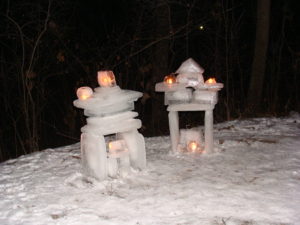Sleep is essential to your survival as a human being. In fact, it’s likely that you can survive longer without food than you can without sleep.
The exact reason you need to sleep eludes scientists, but they do know that sleep is restorative. It supports brain function, conserves your energy, and is rejuvenating in general. You can feel its restorative effects after you’ve had a really good night’s sleep–and the lack of those effects after a couple of nights of tossing and turning without adequate shuteye.
 Generally, you need between seven and nine hours of sleep each night. Some people need more and some need slightly less. Unfortunately, millions of Americans struggle with insomnia, which can come in many forms. For people with mild insomnia, dropping off to sleep may be a problem. Many sufferers are able to fall asleep, but wake during the night and spend the early morning hours staring at the ceiling. In the extreme, people who are plagued by severe insomnia may be sleepless all night long.
Generally, you need between seven and nine hours of sleep each night. Some people need more and some need slightly less. Unfortunately, millions of Americans struggle with insomnia, which can come in many forms. For people with mild insomnia, dropping off to sleep may be a problem. Many sufferers are able to fall asleep, but wake during the night and spend the early morning hours staring at the ceiling. In the extreme, people who are plagued by severe insomnia may be sleepless all night long.
For many, acupuncture can be effective for insomnia, because it treats the cause of sleeplessness. In Chinese medicine, there are a number of underlying conditions that might result in sleep disturbances. Among them:
Excess heat. In Chinese medicine, heat is active, restless, and irritable. It can result from stress, inflammation, medications, or metabolic problems. The heat becomes most noticeable during the cool, quiet hours of nighttime when you’re trying to sleep. Then you may find yourself tossing and turning, your mind racing, or waking up hot.
Liver Qi Stagnation. This is simply strong emotions or stress messing with your sleep. Generally, you’ll find your mind racing when your head hits the pillow, as you rehash the events of the day. This kind of insomnia usually presents itself as an inability to fall asleep.
Food Stagnation. What and when you eat can also cause sleep problems. If you eat heavily right before bed, have digestive problems, or eat a diet of rich fatty foods, it can impact your sleep.
Yin Deficiency. Yin is the nourishing and cooling counterpart to hot and active Yang. In your body, Yin acts like a nutritious coolant that balances the warming pilot light of Yang. When your Yin is depleted, your body’s engine overheats and those effects are most noticeable at night. This kind of insomnia is frequently associated with menopause, and can cause frequent waking with night sweats and feeling hot.
Depleted Energy and Blood. It’s possible to be too wiped out to sleep. Essentially your body can’t rest quietly. If this is your problem, you are usually able to fall asleep, but you wake up and are unable to get back. Rather than a racing mind, with this pattern you lie in bed but sleep just eludes you. You may feel twitchy and restless. This kind of insomnia can be associated with Restless Leg Syndrome.
If your insomnia is severe or if you’ve been a long time sufferer, get some help. The combination of acupuncture and herbs will get the job done for most people. In addition, many people actually sabotage the sleep process through the activities they choose before bedtime. The following tips may help you drop off to sleep more readily:
-Turn off your computer at night. Your computer screen puts off as much or more light than being outside during the day. Also, whatever you may be doing on your computer keeps your mind in a state of activity, making it hard for you to shut down and get to sleep. (Ditto for the TV.)
-Limit your exercise routine to the daytime hours. Avoid physical activity in the few hours before bedtime. Instead, try some light reading, meditating, or relaxing before you turn out the lights.
-Avoid eating a large meal before bedtime. Allow a good two to three hours for your food to digest before heading off to bed.
-Avoid caffeine late in the day. Alcohol and rich foods can also interfere with sound sleep and should be avoided close to bedtime.
-Keep your bedroom cool. Nighttime is meant to be cool, and too much heat can make you restless and wake up hot.
-If your mind is racing from a stressful day (or life), try to sidetrack it by visualizing yourself in a favorite place. Occupy your mind by filling in all the details of that place and then put yourself relaxing into the middle of the scene.



